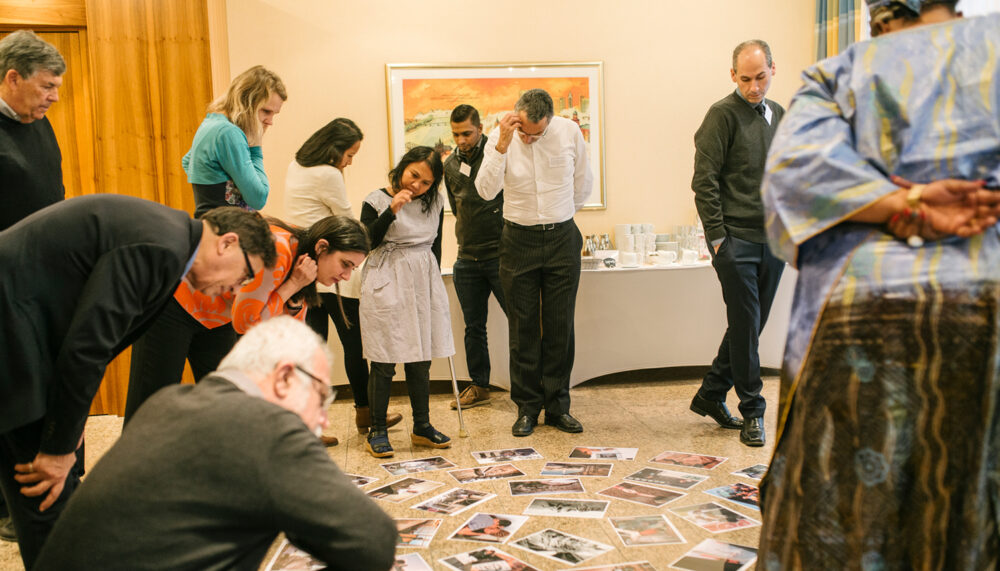
A word from our Executive Director
Adapting to manifold challenges throughout 2021, we carried out work and research in many countries, including Afghanistan, Ethiopia, Syria and Yemen.
Welcome to our annual report. Scroll through to learn about our activities.

Adapting to manifold challenges throughout 2021, we carried out work and research in many countries, including Afghanistan, Ethiopia, Syria and Yemen.
For our work towards sustainable peace, it is essential to bring people together. The ongoing COVID-19 pandemic, and especially lockdowns and travel restrictions, kept on posing challenges to the way we worked in 2021.
We are extremely grateful to our dedicated staff and partners around the world for showing remarkable levels of creativity and flexibility in finding (digital) solutions to keep up our peacebuilding efforts in these times. Despite our rigorous efforts, 2021 was marked by significant challenges in some countries we work in.
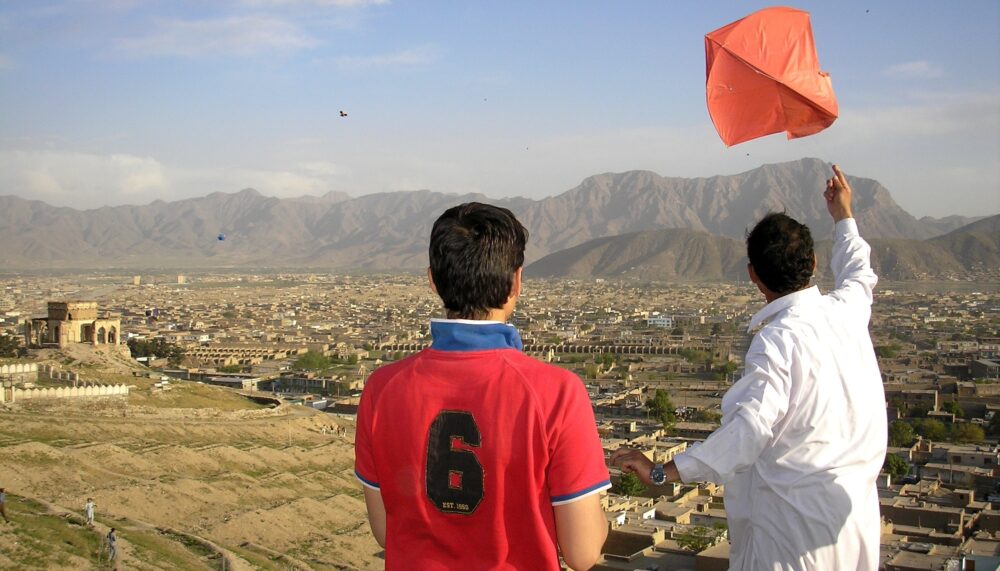
The promising peace negotiations on Afghanistan, for instance, ended abruptly when events took a dramatic turn and the Taliban took over power in mid-August, after the withdrawal of U.S. and international troops. Our team had been providing support to both negotiating teams in Doha, where the negotiations had surpassed the expectations of many in generating mutual understanding between the conflict parties. Unfortunately, the official talks ended abruptly and the economic and humanitarian situation deteriorated in 2021. Despite the many challenges for peacebuilding in Afghanistan, we continue to support the establishment of an participatory, political process that can address the root causes of the conflict and lead to reconciliation and, ultimately, sustainable peace for the country.
Building viable infrastructures that allow for the Afghan people to restore their trust in institutions, and building a platform to address deeply rooted grievances within the society, so they can be reconciled, will be paramount for this process to be successful. Our team has supported Afghan stakeholders in working towards sustainable peace since 2016. We adapted our strategies and keep assisting them in creating capacities for peace and supporting a sustainable transformation of this conflict.
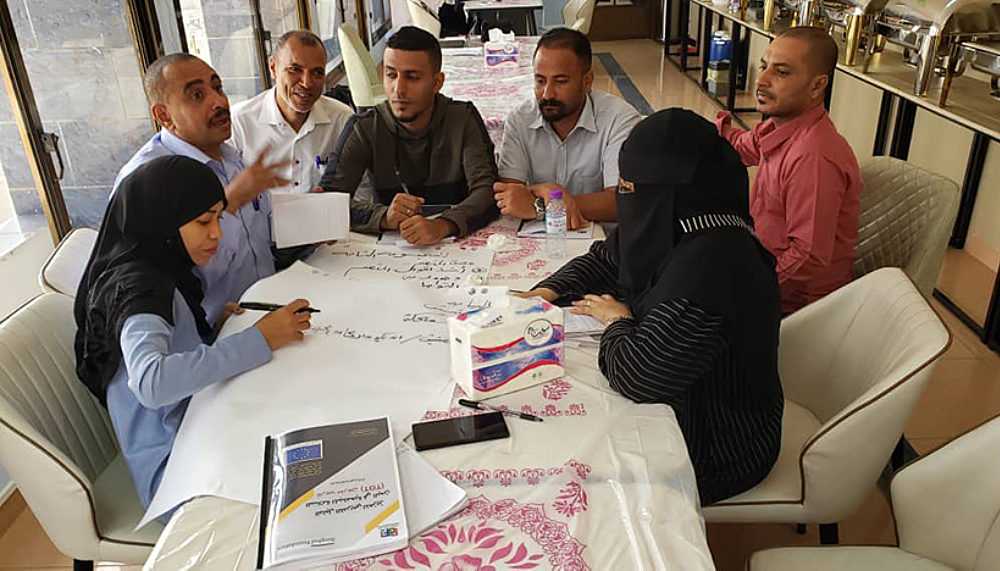
The conflict in Yemen has been in a state of open warfare since 2015 while the formal peace process remains at a standstill. In order to resume formal peace negotiations, we believe that the drivers of the current conflict need to be addressed at local, national, and regional levels. That is why, together with our Yemeni partners, we continued our work to support a political dialogue process in 2021, when we supported consultative committees in three Yemeni governorates to solve local governance issues, and worked to improve community safety with local police forces, civil society and governance actors in five cities.
Looking at the wider Middle East and North Africa region, we continued our work to address and transform current conflict dynamics, and issues related to governance and inclusivity in Lebanon (read more here and here) and Syria. Together with our partner and donor, we supported the establishment of an inclusive regional mechanism for security and cooperation, inspired by the Organisation for Security and Cooperation in Europe.
In Ethiopia, we continued to support Ethiopian-led and -owned dialogue efforts on multiple, interconnected political and societal levels. Together with our partners, we supported exploratory efforts towards the design and implementation of a National Dialogue in Ethiopia. We further accompanied the preparation of intra-ethnic dialogue among different parts of the Oromo community through a series of consultative formats, contributing to confidence building measures at times of high tensions, and we worked with Ethiopian women in their efforts to foster meaningful inclusion of women in dialogue spaces.
Looking at the wider sub-Saharan Africa region, our team worked with local mediators and peacebuilders, so called “insider mediators”, and offered tailor-made workshops on many topics for participants from different realms of society. In Zimbabwe, we worked with insider mediators from civil society organisations, churches, and the government, while in Somalia, we continued to work with the Insider Peacebuilders Network in Hirshabelle and Galmudug States, which organised various local peace activities. We also started to address the impact of climate change on conflicts and communities in Galmudug State by organising community dialogue assemblies, so called Shiraka, in order to solve local conflicts, and we are working with the network members to develop a climate security action plan for Beledweyne.
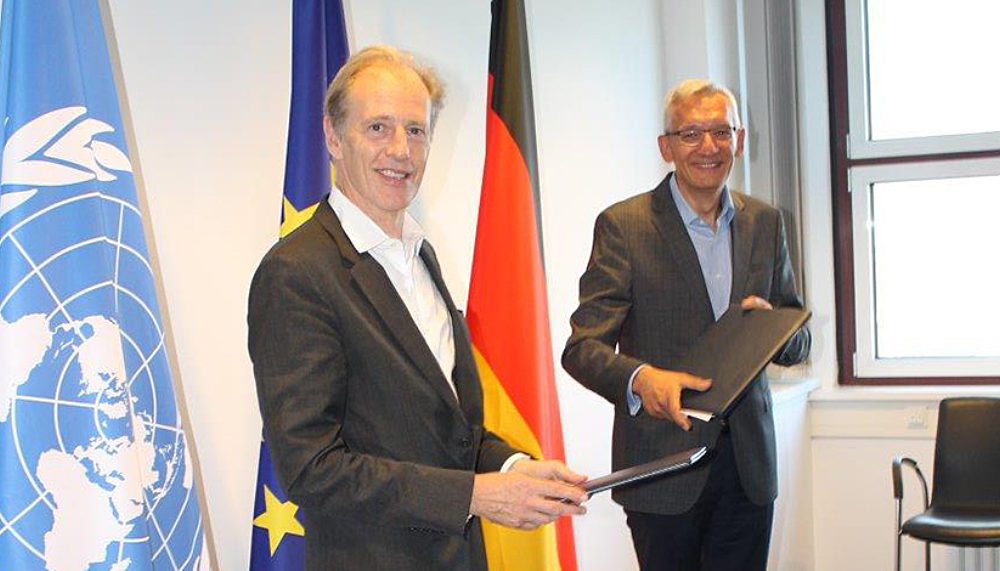
In the South Caucasus region, our work on dialogue between people from Georgia and Abkhazia continued. Our team expanded their concept of “Biographical Salons”, where people from both sides of the conflict exchange their stories, listen to different perspectives and work to overcome an often immanent "silence” about their shared history, to Azerbaijan and Karabakh.
In Germany, our team created an interactive toolkit that helps young people de-mask conspiracy theories and disinformation online. With our network of trainers at the Service Centre for Peace Education, we facilitated more than 50 workshops in schools in Baden-Württemberg and over 40 additional events, like trainings for teachers, lectures and exhibitions. We are glad that all democratic parties in the state parliament of Baden-Württemberg support the sustainable funding of the Service Centre.
We also established an international network of faith-based mediators. Coming together within this network allows the religious peacebuilders to learn from each other, expand their mediation capacities, and receive advice from their peers, so they can facilitate mediation and dialogue processes more effectively.
We also expanded our work on the question how societies can deal with their violent past after conflicts end and we set out to design a learning and knowledge sharing platform around the topic of transitional justice and reconciliation.
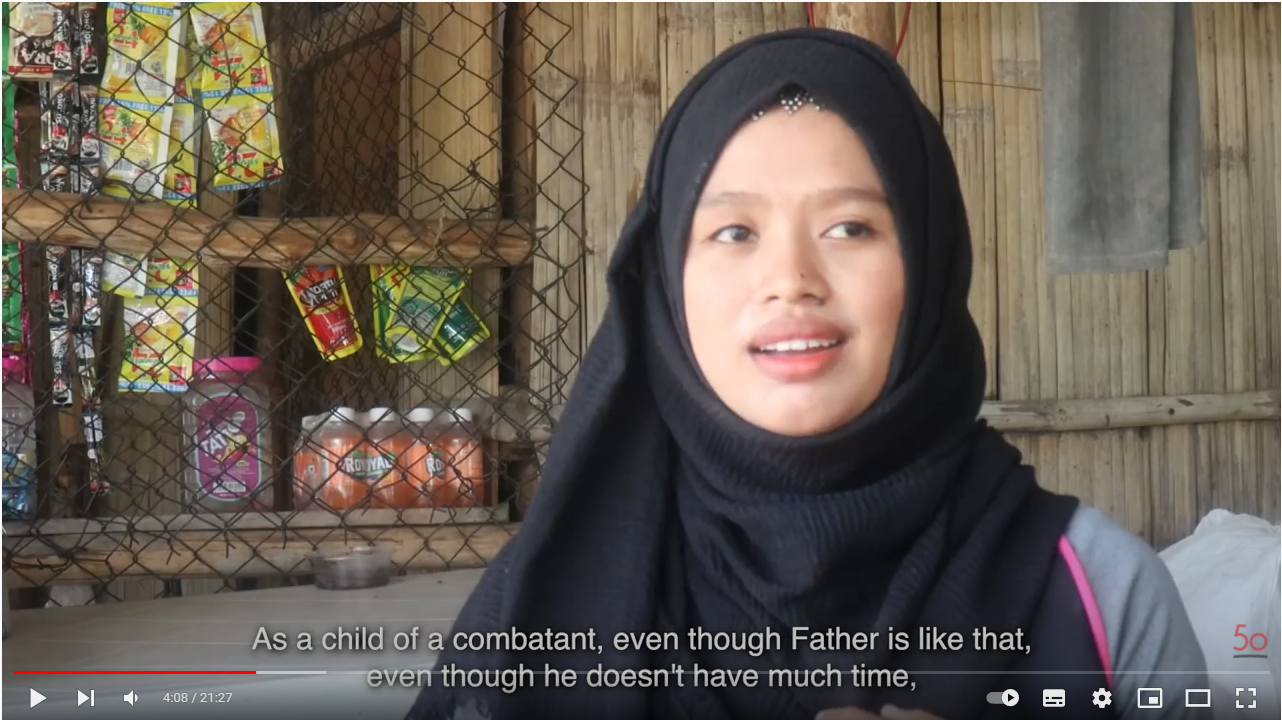
For peace processes and conflict transformation to be inclusive, it is vital that all voices are heard. But way too often those of women, and especially of former female fighters, are overlooked. In 2021, we therefore expanded the approach of our successful project "I have to speak" and worked with female ex-combatants in Mindanao, Philippines, in a cross-generational participatory research project. In recorded interviews, women share stories about why they had decided to pick up arms and reflect on gender dynamics, during and after the armed struggle. We produced a booklet and a film that aim to inspire exchange between generations and support a post-war recovery processes.
All of this is just a small fraction of what we did in 2021. Find out more about our work.
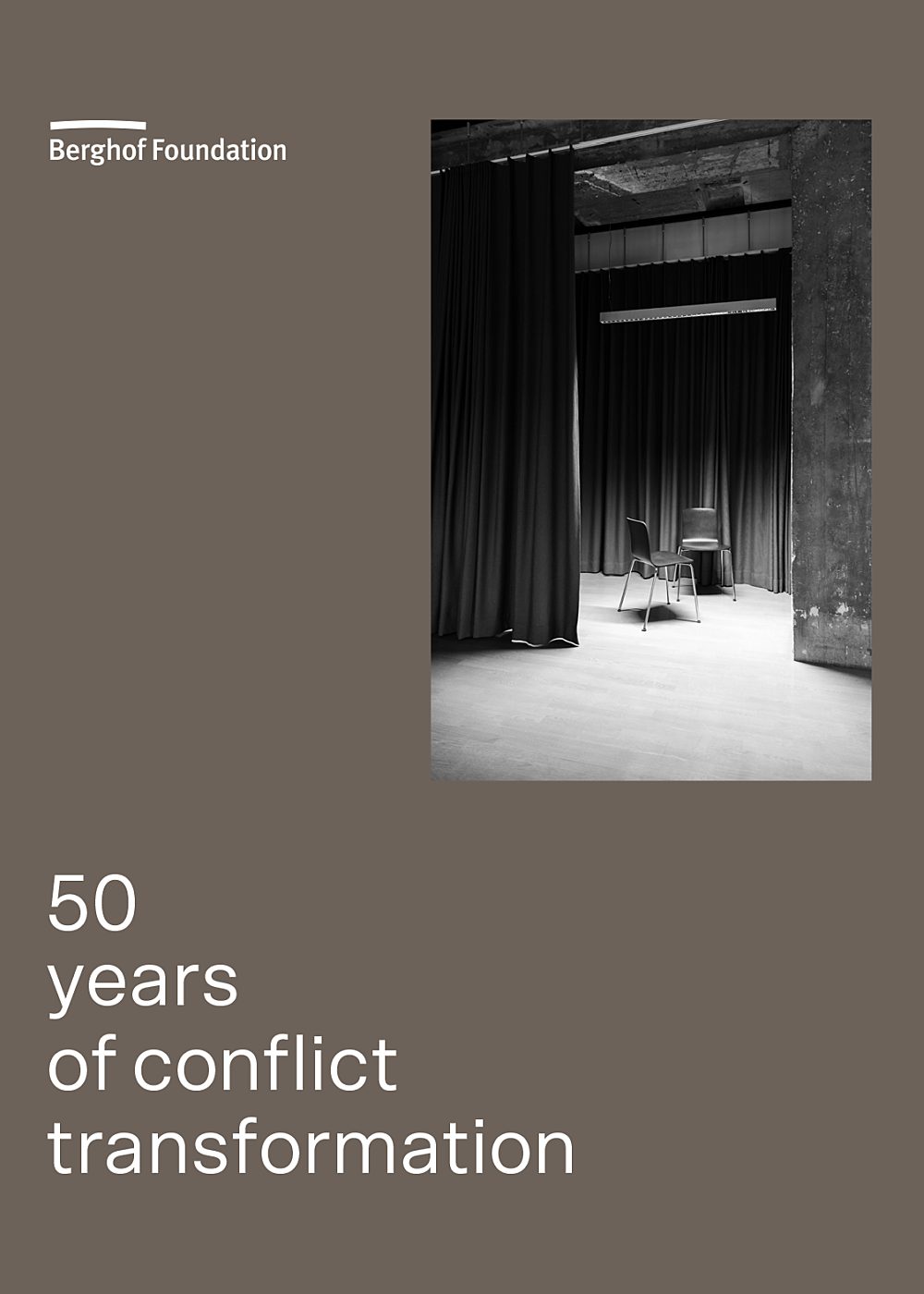
2021 marked the year of our 50th anniversary. To celebrate half a century of working to transform conflicts into peaceful solutions, we launched an events series that brought together renowned experts and thinkers. From the effects of the climate crisis on conflicts to gender dynamics in peacebuilding, or the role of youth in peace processes, we discussed a large variety of topics with our inspiring guests. You can watch recordings of past events here, and make sure to subscribe to our newsletter to stay up to date about future events.
To look back and reflect on our organisation’s rich history, but at the same time also to shed light on future challenges for building sustainable peace, we published a book that provides an overview of our work and impact over the past 50 years. It holds stories and interviews from our support to the German peace movement in the early years, as well as from the dialogue support work on the local and national level that we are providing in many countries around the world today. Take a look!
REPORT CONTINUES BELOW...
To stay up to date with our activities, subscribe to our newsletter or follow us on Twitter, Facebook or LinkedIn.
Partnerships are central to everything we do. In 2021, we partnered with local organisations around the world and many international peer organisations, multilateral agencies and global networks.
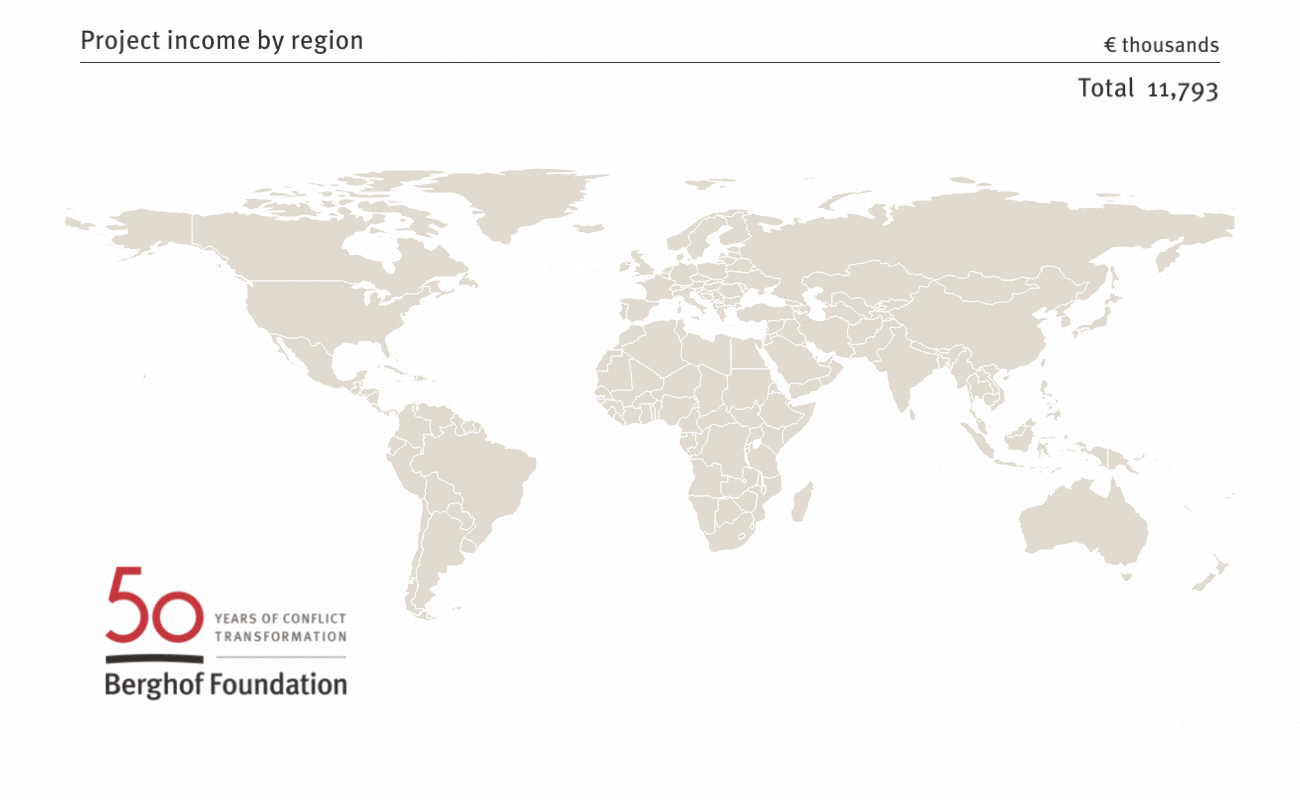
Together we have enhanced the field of conflict transformation and provided concrete support to many people in conflict. We are very fortunate to have trusted, longstanding relationships with so many courageous individuals and organisations and are grateful to every one of you.
In 2021, our operating revenue increased to €11,8 million, reflecting Berghof’s organisational growth. You can find our auditors’ report for download below.
As an organisation we continue to plan, adapt and adjust to the external circumstances and context of our work, and are working to ensure the sustainability of our organisation. The commitment of our long-standing partners has been critical to our achievements during 2021 and we are extremely grateful to our key donors:
Our work is supported by many people and institutions who share our commitment to building peace and we would like to thank all our partners for their generous support of our work.
The vital work of the Berghof Foundation would not be possible without our exceptional team. In 2021, Berghof was represented by a diverse body of over 95 people. We remain grateful to our Board of Trustees, which has supported us throughout the year with advice and scrutiny of our work.
In 2021, we would of course like to go even further, increasing our positive impact on people in conflict all around the world. Many of our projects need your support and our joint investment in peace.
Learn more about our finances:
The following institutions supported our work during 2021:
In order to adopt to a planet facing ecocide through climate change, a digitalised world, and further global challenges, the Berghof Foundation as an organisation has to evolve as well. We are therefore expanding our activities beyond our established focal areas into six additional areas of strategic importance. Read how Berghof intends to go about it over the next four years in our strategic plan.
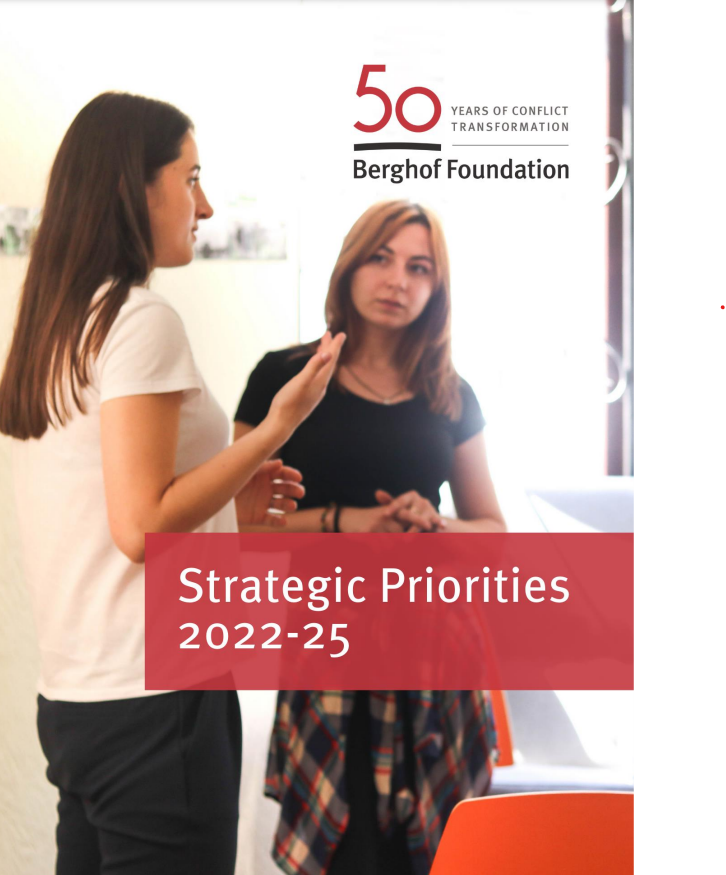
Are you interested to read more about our work? Take a look at annual reports from previous years.
Photo: Participants in a workshop on religion and peace education near Berlin. | Copyright: Jakob Schnetz/Berghof Foundation